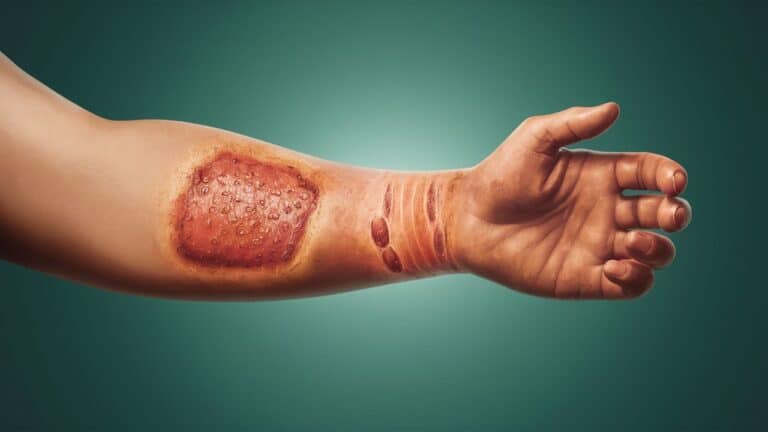When you’re injured due to someone else’s negligence, the liable party is usually responsible for your medical expenses, lost earnings, and pain and suffering. However, not all personal injury cases are that simple.
Suppose you injure your back in a crash where another driver rear-ends you. You might assume the other driver’s insurance company will pay for your injuries and damages. Seems pretty straightforward.
But what if you had a pre-existing condition with your lower back, such as a bulging disc? The insurance company may balk at giving you the settlement you want, arguing that your pre-existing condition is responsible for your symptoms and pain.
Having a pre-existing condition doesn’t mean you cannot obtain compensation, but it complicates the case. When making a personal injury claim with a pre-existing condition, Pinder Plotkin can advocate for you and fight for the best possible outcome.
What Is a Pre-Existing Condition?
A pre-existing condition in a personal injury case affects the same body area or part that was hurt in the accident. The liable party’s insurance company covers your damages in a personal injury lawsuit. This involves paying your medical bills, lost earnings, and property damages.
However, the negligent party is not responsible for paying for injuries they did not cause. If you have a pre-existing condition, the accident may have worsened. For instance, you might have degenerative disc disease aggravated by a rear-end car accident.
If the crash did not cause the injury, the party who caused the accident is not liable for paying damages. But if the injury worsens your pre-existing condition, you can receive compensation for your losses.
Some of the most common pre-existing injuries that affect personal injury cases are:
- Osteoarthritis
- Arthritis
- Asthma
- Osteoporosis
- Degenerative disc disease
- Spinal stenosis
- Heart conditions
- High blood pressure
- Anxiety
- Depression
If you were in an accident and have these or another pre-existing condition, immediately alert your doctor and personal injury attorney. You can still recover damages in a claim when you have a pre-existing condition, but your attorney needs to prepare the case with that in mind.
How Does a Pre-Existing Condition Complicate A Case?
After an accident, the negligent party’s insurance company is theoretically responsible for covering your injuries and other damages. However, the insurance company will do everything possible to minimize its liability. If the insurance adjuster discovers you had a pre-existing injury, they will seize on this information and attempt to use it against you.
However, your personal injury attorney will argue that the defendant’s negligence worsened your pre-existing injury. With proper legal arguments and evidence presented, you can still receive ample compensation for your losses when you have a pre-existing condition.
Remember that it is vital to disclose any pre-existing conditions when retaining an attorney after an accident. Hiding a pre-existing condition never goes well. Eventually, the defendant’s insurance company will discover you tried to hide your condition, allowing them to reject your claim entirely. In addition, if you need to testify in court, it never looks good to a jury if the plaintiff has tried to conceal pertinent information.
The Eggshell Plaintiff Theory
A pre-existing condition can make you more likely to be injured in an accident, but it does not mean you should receive less for your injuries. The “eggshell plaintiff” theory means that the insurance company or court must consider a personal injury victim as they are, meaning they cannot be denied compensation simply because their pre-existing injury made it so they were more likely to get hurt in an accident.
In Maryland, courts and juries must consider you in the state you were in when the accident happened. The negligent party is liable for whatever damages they caused, regardless of your medical condition and injuries before the accident.
Medical Records Are Critical
The quality of medical records is crucial in a personal injury claim with pre-existing injuries. Your medical records offer critical details about your health before the accident. They also support how the injury was made worse after the accident. For example, in your personal injury case, your lawyer may rely on the following medical evidence to prove the accident caused your pre-existing injury worse:
- Imaging
- Diagnostic tests
- Doctors’ reports
- Expert testimony
It is critical that your medical records are highly detailed and thoroughly discuss your medical condition. In addition, any medical information provided before the accident should detail how severe the injury was and how it affected your life.
Furthermore, your medical records after the accident should offer details about how the accident worsened the pre-existing injury and symptoms after the incident.
A Pre-Existing Condition Is Not Necessarily a Negative
A personal injury case with a pre-existing condition can add complications, but it is not necessarily a negative. In fact, a pre-existing condition can make it easier to obtain compensation because a clear illustration of your condition before the accident shows the harm that the accident caused.
Contact a Baltimore Personal Injury Attorney Now
If you were hurt in an accident and have a pre-existing condition, you can still file a personal injury claim and receive compensation. However, having a skilled attorney at your side is even more critical in a case with a pre-existing condition. Call Pinder Plotkin today to discuss your personal injury case and pre-existing condition.





